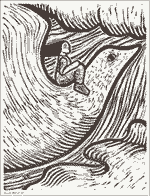|
New Directions For Canada by CCLOW Ottawa CCLOW Ottawa is a group of feminists interested in women's education. They meet once a month in Ottawa and, this March, decided to address their concerns to The Honorable Michael Wilson, Minister of Finance. To date, no reply has been received. The group process through which this document a feminist approach to policy making was produced is described in a paper which will appear this year in the 50th anniversary publication of the CAAE (Canadian Association for Adult Education). Following the Second World War, Canada embarked on a period of unprecedented industrial expansion, population growth, ethnic diversification, and exploitation of natural resources. The nation experienced a revolution of rising expectations, in which we assumed that there were no boundaries to our continuing acquisition of wealth in all its manifestations. As we approached our centennial year, we truly believed that the twentieth century belonged to Canada. However, as Canada entered its second century, the nation faced new realities in every direction. The assumptions on which our economic policy was based came increasingly into question. We learned that there were in fact limits to growth, that there were limits to the extent to which we could or wanted to exploit our natural resources, that we would have to establish new assumptions and priorities on which to develop our economic and social policies. In setting these new priorities, we as a nation have a number of values which must inform our policy choices. One of these is the value we place on our status as an independent nation that is politically and economically autonomous. Our extended and ultimately successful efforts to patriate the Constitution affirmed the importance which we attach to recognizing our independence, both at home and abroad. At the same time, we value our place in the global village, our membership in a family of inextricably linked nations and peoples. From the outset, we have been strong supporters of the United Nations and other organizations based on the belief that our continued survival depends on recognizing and strengthening our ties with other countries throughout the world. A third, related, value which Canadians hold dear is our sense of identity as a nation. In the post-war period, Canada's demographic make-up has shifted to encompass a rich blend of ethnic and racial backgrounds which have given us new strength and vision. We have implemented and continue to seek social and economic policies which will bring us together as a unified people while encouraging the contributions of our multicultural heritage and respecting our differences.
A fourth value which has become increasingly important to Canada is seen in the emphasis we give to developing and applying our knowledge and skills. We have been justifiably proud of our public education system. Our successes with the Canadarm and our place in the forefront of high technology have illustrated the national priority which we assign to our intellectual resources. In our personal lives we have faced the same kinds of changes since the war as those experienced by the country at large. We now see a variety of choices in our social and economic lives that were unimaginable fifty years ago. And, increasingly, individuals are exploring every avenue that has been opened to them. At one time, the dream, if not the reality, aspired to by most Canadians was of a nuclear family, with a male breadwinner and a female homemaker, children, a car, a house with property attached. Now we recognize that, as the nation's strength is in its diversity, so is the strength of the individual. People are choosing alternative life-styles based on the reality that we have individual differences, that what may be best for you are not necessarily the right choice for me. |
| Back | Contents | Next |
